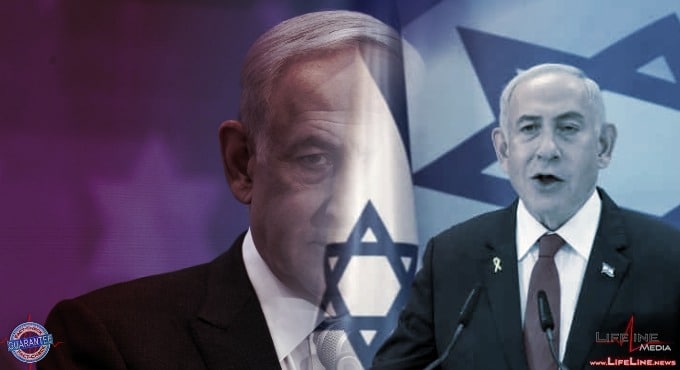
THREAD: ukraine russia news latest developments
LifeLine™ Media threads use our sophisticated algorithms to construct a thread around any topic you want, providing you with a detailed timeline, analysis, and related articles.
News Timeline


— No new major world news reported outside UK and US. The current news timeline remains unchanged, with no recent breaking events.
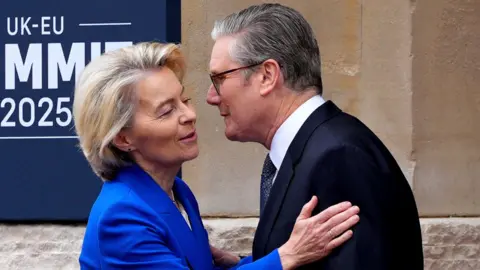
— UK News Access Disrupted Technical issues are severely limiting access to updates, causing frustration and disrupting news flow; authorities are working to resolve the problem, highlighting vulnerabilities in digital infrastructure

RUSSIAN DRONE Strike Shocks Ukraine: Nine Innocents Killed After Peace Talks Fail
— A Russian drone attack killed nine civilians and wounded seven more in Ukraine’s Sumy region on May 17. The strike hit a bus carrying evacuees from Bilopillia, a town close to the Russian border. This deadly assault came just hours after peace talks in Istanbul fell apart, raising fears of even more violence ahead.
Russian President Vladimir Putin refused to join the negotiations, leaving no hope for a ceasefire despite a small prisoner swap. Former President Donald Trump called the situation a “bloodbath” and promised to reach out to both sides to help stop the fighting. Many Western leaders are now pushing for tougher sanctions on Russia and more aid for Ukraine.
People around the world are outraged by this attack on innocent lives. Photos from Bilopillia show families suffering, making it clear just how high the human cost of this war has become.
In contrast, India and Pakistan have agreed to a fragile ceasefire after U.S.-led talks — a rare bit of good news as global tensions keep rising elsewhere. The world is watching closely as Ukraine’s crisis grows worse by the day.
NO SHOCKING Financial News Rocks Markets: Investors Relieved on May 17, 2025
— Conservative investors hoping for big headlines today can breathe easy. There are no new financial shocks or surprises for May 17, 2025. The news cycle remains calm, with no sudden market drops or major policy changes making waves.
Instead, the main stories still center on ongoing issues like the Russia-Ukraine conflict and U.S. ties in the Middle East. Some reports mention local ceasefires, but nothing has rattled Wall Street or Main Street today. No big IPOs or earnings shakeups have hit the wires either.
Japan’s decision to treat crypto assets as financial products stands out as a recent highlight from late March — not today. Inflation is cooling a bit, but worries about tariffs and global trade fights continue to linger over the markets’ future direction.
In short, it’s a steady day for finance with no fresh disruptions or breakthroughs reported. Smart investors should keep watching world events that could change things in the days ahead — but for now, all is quiet on Wall Street.;

RUSSIAN DRONE Attack Shocks Ukraine: Innocent Lives Lost After Failed Peace Talks
— Nine innocent Ukrainians were killed and seven more wounded when a Russian drone struck a bus in Bilopillia. The attack came just hours after peace talks in Turkey broke down. The victims were evacuees trying to escape the violence.
The failed talks fell apart because Russian President Vladimir Putin refused to attend. This latest strike shows how fragile peace is and how quickly the situation can get worse. Many are now pushing for new talks as fighting grows.
Former President Donald Trump says he plans to speak with leaders from both sides to help calm things down. But for now, the crisis is only getting worse, with more civilians caught in the crossfire.
Major news outlets like CNN and BBC have shown images of the destruction, raising fears across Europe that this war could spread even further. The world waits anxiously as Ukraine faces another tragic loss.
— Russian Drone Strike Kills Nine Civilians in Ukraine After Peace Talks Collapse The attack in Bilopillia targeted evacuees shortly after Moscow and Kyiv failed to reach an agreement in Turkey, fueling global outrage and fears of prolonged conflict
— Russian Drone Strike Kills Nine Civilians in Ukraine After Failed Peace Talks The attack in Sumy’s Bilopillia occurred hours after Moscow and Kyiv’s negotiations collapsed, fueling global outrage, while India and Pakistan agreed to a US-mediated ceasefire, offering fragile regional hope
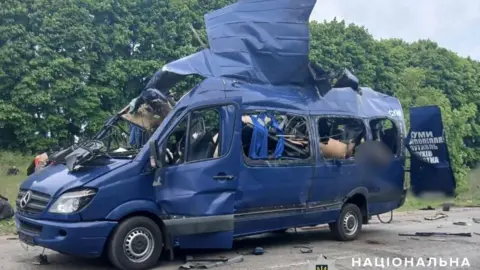
— Russian Drone Strike Kills Nine Civilians After Failed Ukraine Peace Talks The attack on Sumy’s Bilopillia follows the collapse of peace negotiations in Turkey, sparking global outrage and fears of a prolonged conflict
PUTIN’S Shocking Rejection: Ukraine Peace Hopes Shattered
— Russian President Vladimir Putin has crushed hopes for peace by rejecting the latest Ukraine deal. His decision sparked outrage and left many wondering if the war will ever end.
World leaders quickly condemned Putin’s move, calling it a huge blow to peace efforts. Even with tough sanctions and pressure, Russia refuses to back down or make any deals.
Officials have not shared much about what was in the rejected plan, but Ukraine and its allies wanted real steps toward stopping the fighting. Now, countries are scrambling to figure out what to do next as tensions get worse.
This story is changing fast as diplomats rush to find new ways forward after Putin’s stunning rejection of peace talks.
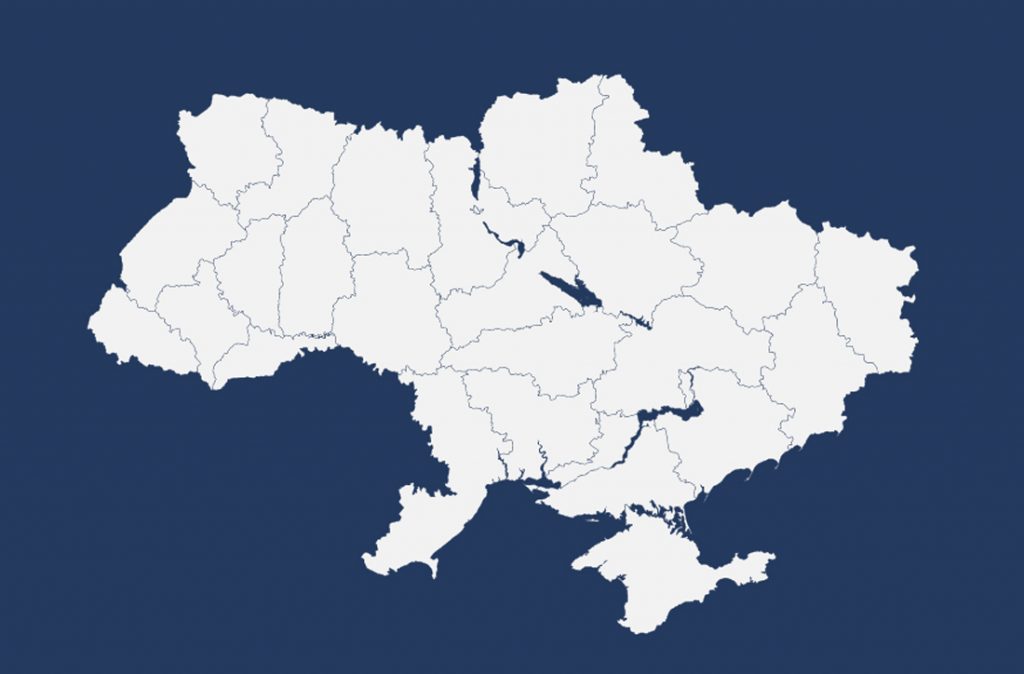
RUSSIAN DRONE Strike Shocks Ukraine: Innocent Lives Lost After Peace Talks Collapse
— A Russian drone strike killed nine innocent people and wounded seven more in Ukraine’s Sumy region on Saturday. The attack hit a bus carrying evacuees from Bilopillia, just six miles from the Russian border.
Ukrainian President Zelenskyy called it a “deliberate killing of civilians.” He blamed Russia for refusing to agree to a ceasefire during recent peace talks. British officials also condemned the strike and urged Russia to stop its aggression.
Local leaders declared a period of mourning until Monday, calling it “Black Saturday.” The injured were taken to the hospital in Sumy as families mourn another painful loss.
This tragedy shows once again how dangerous failed diplomacy can be. Many now wonder if true peace is possible when one side refuses to stop the violence.
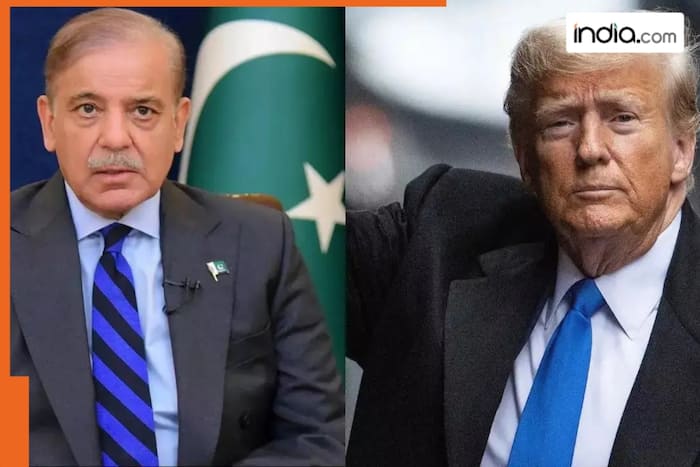
AMERICA’S Calm DAY: Why NO Breaking News on May 10 Left Many Relieved
— May 10, 2025, was a rare day for the United States. There were no major breaking news stories. The news cycle stayed steady, giving Americans a break from constant headlines.
Top stories included the US helping broker peace between India and Pakistan. Vice President Vance and Secretary Rubio led talks that ended with Pakistan’s Prime Minister thanking America for its leadership.
Disney posted strong profits as families flocked to theme parks and streaming services. Other updates covered debates over the debt ceiling, moves to speed up oil and gas projects, ICE enforcing immigration laws, an earthquake in Tennessee, and police cracking down on illegal immigration.
Newsrooms reported nothing exclusive or urgent for the day but promised to keep watch for any new developments as they happen.
UK NEWS FREEZE: Calm Breaks the Usual Chaos on May 4
— For once, there’s no breaking news from the United Kingdom today. On May 4, 2025, things are steady — no major events have shaken the country.
All top news sources and officials agree that nothing significant has changed since yesterday. The headlines remain quiet across Britain.
If you’re looking for updates or surprises, you’ll have to wait a bit longer. Right now, it’s business as usual with no fresh stories making waves.
Stay tuned for any shifts or unexpected developments — but today, calm rules over chaos in the UK.

US-UKRAINE MINERALS Deal Ignites Hope for Trump’S Strong Support
— The United States and Ukraine have signed a new deal giving America access to Ukraine’s key minerals. Ukrainian leaders say this version is better for them than past drafts, which would have made Ukraine less of an equal partner. The agreement still needs approval from Ukraine’s parliament.
The deal also sets up a fund to help rebuild Ukraine. Kyiv hopes this will secure more U.S. military aid in the future. A similar agreement almost happened before but was stopped during tense talks with President Trump, Vice President JD Vance, and President Zelenskyy.
Secretary of State Marco Rubio called this week “very critical” for ending the war in Ukraine. Treasury Secretary Scott Bessent said the deal sends Russia a clear message: The Trump administration stands by a free and independent Ukraine.
Ukraine sees this as an important move to keep America as its top ally against Russia’s invasion. Now all eyes are on whether Kyiv’s lawmakers will approve the plan.

PUTIN’S Easter Ceasefire Shattered: Deadly Betrayal Leaves Ukraine in Mourning
— Three people were killed in Ukraine’s Kherson region during what was supposed to be a 30-hour Easter ceasefire announced by Russian President Vladimir Putin. Ukrainian leaders say Russian forces kept attacking, with President Zelenskyy reporting over 2,900 violations and hundreds of drone strikes during the truce.
Russia denies breaking the agreement. The Russian Defense Ministry claims its troops “strictly observed the ceasefire” and did not push forward. Instead, Moscow accuses Ukraine of nearly 5,000 violations.
Putin says fighting only started again after the truce ended. Meanwhile, Zelenskyy is calling for a longer peace or at least an end to attacks on civilians — something Russia says will only happen if Western countries stop sending weapons to Ukraine.
The back-and-forth blame shows just how little trust remains between Moscow and Kyiv. Both sides point fingers as innocent lives are lost — even on sacred holidays.

PUTIN’S Fake Ceasefire Sparks Outrage As Attacks Rock Ukraine
— Russian President Vladimir Putin announced a 30-hour Easter ceasefire, but deadly attacks still hit the Kherson region. Ukrainian officials say three people were killed and three more hurt during what was supposed to be a truce. The head of Kherson’s administration, Oleksandr Prokudin, shared these numbers with the public.
Ukrainian President Volodymyr Zelenskyy accused Russia of breaking the ceasefire over 2,900 times. He said Russian forces kept up shelling and drone strikes along the front lines. Zelenskyy told his people that “actions always speak louder than words” and promised Ukraine would only stay silent if Russia did too.
Russia’s Defense Ministry pushed back, blaming Ukraine for 4,900 violations instead. They claimed Moscow’s troops “strictly observed the ceasefire.” But as soon as midnight hit and the truce ended, fighting picked right back up across both sides.
Putin says he’ll only agree to a real ceasefire if Western countries stop sending weapons to Kyiv and if Ukraine stops calling up new soldiers — terms Ukraine flatly rejects. With both sides pointing fingers and refusing to budge, this war looks far from over.
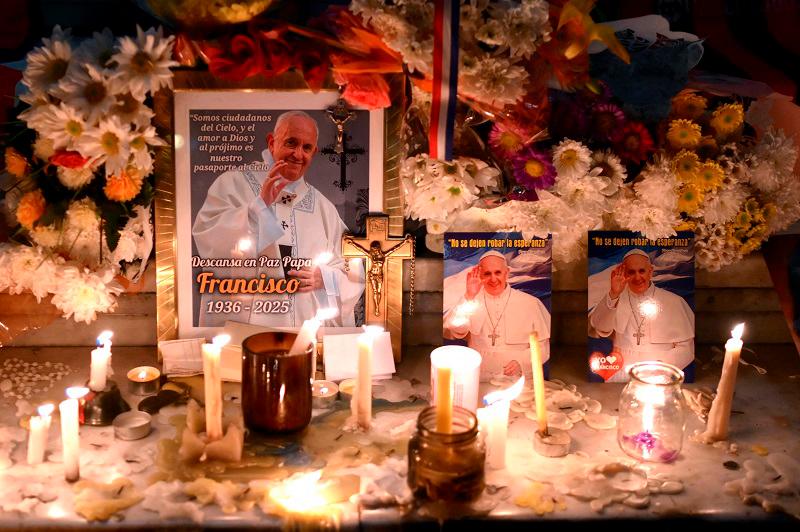
POPE FRANCIS Death Shock: World Stunned as Global News Stalls
— The world is standing still after the death of POPE FRANCIS. Business leaders worldwide have sent their condolences, but there are no major international events making headlines.
Most news outlets have shifted focus to U.S. stories, like the Arizona Department of Corrections investigation and Harvard’s lawsuit against the Trump administration. These are not global stories and offer little for those wanting international updates.
Outside of ongoing coverage about Pope Francis’s passing, there is almost no movement on the world stage. Anyone hoping for big news from abroad will have to wait until something new breaks.

PUTIN’S Fake Ceasefire: Ukraine Shattered by Deadly Attacks During “Truce”
— Russian President Vladimir Putin promised a 30-hour EASTER ceasefire. But while he claimed to stop fighting, Ukrainian officials say Russian attacks killed three people in Kherson and injured more. Shelling continued even as Moscow said it was honoring the truce.
Ukrainian President Volodymyr Zelenskyy accused Russia of breaking the ceasefire over 2,900 times. He said there were hundreds of drone strikes and nearly 100 assaults along the front lines during those hours. Zelenskyy made it clear — Ukraine will defend itself if attacked.
Russia’s Defense Ministry pushed back, blaming Ukraine for almost 5,000 violations instead. They insisted Russian troops stayed put and did not attack first. After the truce ended, Putin said fighting resumed and criticized Kyiv for asking Western nations for help instead of peace talks.
Putin now demands that Western countries stop sending weapons to Ukraine before any real ceasefire can happen — something Ukraine refuses to accept. As both sides trade blame over failed truces, peace looks farther away than ever in this brutal war.
NO NEW World News Shocks: Media Silent Beyond US, UK on April 21
— On April 21, 2025, global news outlets had nothing new to report outside the United States and United Kingdom. Headlines stayed the same as previous days.
Most coverage still centers on the Israel-Palestine conflict. Aid groups warn about Gaza’s growing crisis because of ongoing blockades. In the UK, protests and legal fights over transgender rights continue to make news.
No fresh international events or emergencies have surfaced beyond these stories today.
Conservative readers may notice how media keeps focusing on just a few issues instead of reporting unexpected world events that matter to everyday people.
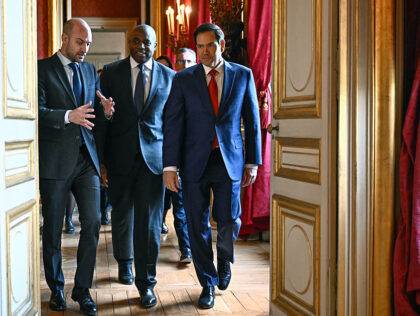
US PEACE TALKS Warning: Rubio’s Bold Move Could Change Ukraine War
— Secretary of State Marco Rubio warned Friday that the U.S. might walk away from Ukraine-Russia peace talks if both sides don’t show real progress soon. Speaking before leaving France, Rubio said Moscow and Kyiv aren’t taking talks seriously. “We’re not going to be flying all over the world and do meeting after meeting if no progress is being made,” he told reporters.
Rubio made it clear that America won’t keep joining pointless meetings just for show. He said the U.S. wants to help end the war in a fair and lasting way, but only if either side truly wants peace.
If Russia or Ukraine doesn’t show they’re ready to compromise soon, Rubio hinted President Trump could decide it’s time for America to step back from negotiations. Still, he left open the chance for future talks if things change.
Many conservatives agree with Rubio’s tough stance, saying America should not waste time or resources on endless discussions that go nowhere while our own country faces serious problems at home.

RUSSIAN MISSILE Strike: Ukraine Mourns as 34 Lives Lost
— A RUSSIAN missile strike in Ukraine’s Sumy region has taken the lives of at least 34 people. President Volodymyr Zelenskiy condemned the attack, calling it terrorism and urging a strong international response. He asked the United States and European nations to take decisive action against Moscow.
This tragic event raises tensions amid ongoing ceasefire talks between Ukraine and Russia. Both countries have accused each other of breaking agreements meant to protect energy infrastructure, making diplomatic efforts more difficult.
Zelenskiy stressed the need for stronger diplomatic pressure on Russia during a CBS News interview, highlighting the urgency for global intervention in this escalating crisis.
RUSSIA’S Shocking Attack on Ukraine: EU Calls for Tough Sanctions
— European leaders are outraged by Russia’s missile attack on Sumy, Ukraine, which killed 34 and injured 117. The strike happened during Palm Sunday celebrations, marking the second major civilian tragedy in just over a week.
Polish Foreign Minister Radek Sikorski slammed Russia’s actions as mocking U.S.-led ceasefire efforts. He urged President Trump to see Russia’s blatant disregard for peace initiatives.
Finnish Foreign Minister Elina Valtonen noted the attack followed talks between Trump’s envoy and Putin, showing Russia’s indifference to peace and human life. Lithuania called using cluster munitions a war crime.
French Foreign Minister Jean-Noël Barrot demanded strict EU sanctions against Russia to cripple its economy and stop its war efforts, stressing Putin’s refusal to end hostilities willingly.

BRITAIN’S Bold Military Boost to Ukraine: A Game-Changer?
— Britain announced a major military support package for Ukraine, pledging over $580 million alongside Norway. This aid includes drones, radar systems, and anti-tank mines. The goal is to strengthen Ukraine’s defenses against the ongoing Russian invasion.
Ukrainian Defense Minister Rustem Umerov stressed the need for advanced air defense systems like Patriot missiles. He urged Western allies to supply these systems to shield Ukrainian cities from Russian ballistic threats, noting that such equipment is available among Ukraine’s partners.
Russia holds a strategic edge as the conflict enters its fourth year. Ukrainian officials expect a new Russian offensive aiming to boost their position in ceasefire talks. The situation remains tense with both sides gearing up for possible escalations.
The 27th meeting of the Ukraine Defense Contact Group was held in Brussels, led by Britain and Germany. U.S. Defense Secretary Pete Hegseth was notably absent but joined via video after returning from Panama earlier this week.
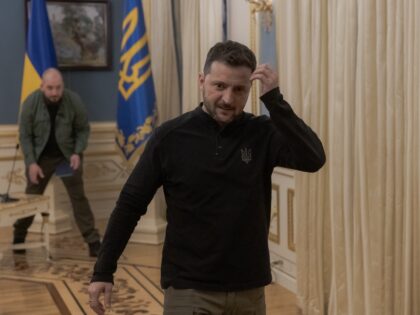
UK’S BOLD Defense Strategy: REASSURANCE Force for Ukraine Unveiled
— The UK’s Ministry of Defense is crafting a “reassurance force” to bolster Ukraine against Russian aggression. Admiral Antony Radakin stressed enhancing the Ukrainian army’s strength to deter future threats. Talks this weekend aim to set the stage for further discussions in Brussels with defense ministers and the Ukraine Defense Contact Group on Friday.
Britain supports a European-led peacekeeping force in Ukraine, relying on U.S. backing to counter potential Russian reprisals effectively. The proposed force could include 10,000 to 30,000 troops — a significant pledge from nations rebuilding post-Cold War militaries. Former President Trump has consistently pushed for a ceasefire and opposed Ukraine joining NATO, pausing military aid during his tenure.
Meanwhile, the death toll from a Russian missile strike in Kryvyi Rih has risen to 18, including nine children, according to regional Governor Serhii Lysak. The attack injured 72 people — half remain hospitalized with serious injuries affecting 17 critically. Oleksandr Vilkul of the city’s defense council condemned the attack: “There can never be forgiveness for this.”
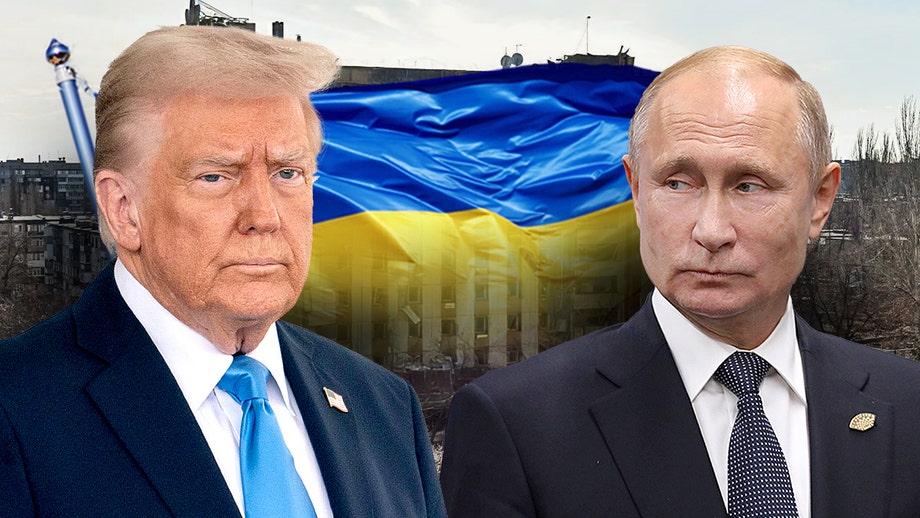
RUSSIA’S CEASEFIRE Bluff: Will They Really Stop the Conflict?
— Secretary of State Marco Rubio announced that RUSSIA’s commitment to a ceasefire in Ukraine will soon be tested. Speaking at NATO headquarters, Rubio stressed the U.S.’s desire to end the conflict and warned against potential delay tactics by Moscow.
Russia’s rejection of a 30-day ceasefire proposed by Ukraine and its conditions for a Black Sea truce have raised doubts about its intentions. The Trump administration remains cautious, with President Trump unwilling to engage in endless talks without concrete actions from Russia.
Rubio avoided detailing Russia’s conditions for peace but pointed out discrepancies between official reports and actual discussions with foreign leaders. This was clear after President Trump’s call with Russian President Putin, where differing accounts emerged about commitments on Black Sea force usage.
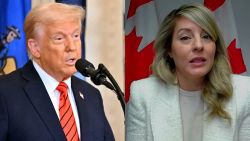
NO BREAKING News: What This Silence Means for America
— The search for fresh breaking news in the United States has come up empty. Current events are still unfolding within existing timelines.
This pause in new information suggests a temporary lull in major newsworthy events. However, this could change as updates emerge.
Readers should stay informed and check back for any potential updates or emerging stories that might arise.
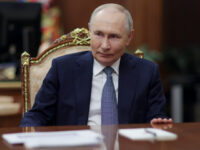
PUTIN’S Bold Peace Plan: Brics And North Korea In Ukraine Talks?
— Russian President Vladimir PUTIN has proposed a fresh approach to peace talks in Ukraine, suggesting the expanded BRICS group play a role. This collective now includes Egypt, Iran, UAE, and Ethiopia. In 2024, thirteen more nations joined as "partner countries.
PUTIN’s comments left it unclear if all new members and partners would join the talks. Including North Korea could complicate things due to its military support for Russia against Ukraine. South Korea reported that North Korea sent troops and weapons to help Russia’s war efforts.
Amid these events, North Korean leader Kim Jong-un plans another visit to Russia this year. Russian Deputy Foreign Minister Andrew Rudenko confirmed the visit is being arranged but didn’t provide a date. Kim visited Russia in 2019 and 2023, strengthening ties between the two countries.
During his Murmansk visit, PUTIN suggested replacing Ukrainian President Zelensky with an interim international administration under UN oversight for peace accords and elections. He proposed including the U.S., European countries, and Russia’s allies in this temporary governance structure for Ukraine.

NEWS ACCESS Issues Cause Frustration For Readers
— Technical difficulties are blocking access to the latest news stories. This glitch affects how we get current updates and information.
If you’re looking for specific news topics or have questions, please reach out for help. We’re working hard to fix these issues quickly.
Stay tuned for more updates as we aim to restore full access and ensure timely delivery of news content.
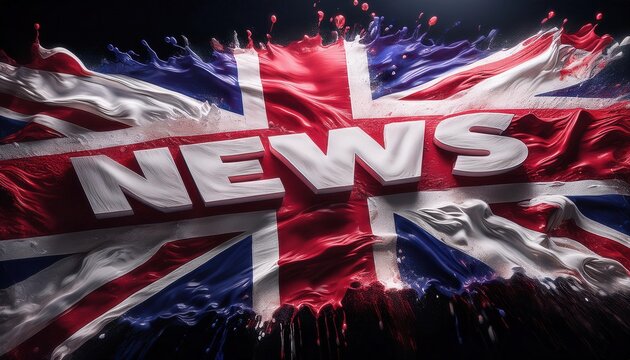
UK NEWS BLACKOUT: Technical Glitch Leaves Readers in the Dark
— A technical glitch has disrupted news access across the United Kingdom, leaving many without updates on current events. This unexpected issue has caused frustration among those eager to stay informed.
The problem affects breaking news retrieval and accessing timelines. Efforts are underway to resolve this quickly and restore normal service.
Meanwhile, readers should check alternative sources for updates or specific information they need. Stay tuned for more developments as technicians work on a solution.
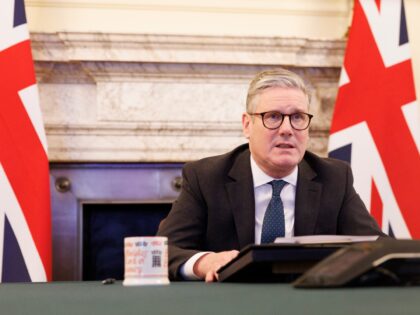
TRUMP vs PUTIN: The Dramatic Ukraine Ceasefire Standoff
— An upcoming virtual summit, led by Starmer’s “coalition of the willing,” will discuss military and financial aid for Ukraine. The meeting will also consider a peacekeeping mission if Russia agrees to talks.
About 25 countries, including European partners and Ukraine, plan to join. Notably missing is the United States, which has changed its stance on the war under President Donald Trump after his recent clash with Ukrainian President Zelenskyy in the Oval Office.
The U.S. proposed a 30-day ceasefire in Ukraine, backed by Zelenskyy but met with conditions from Putin. Secretary of State Marco Rubio expressed “cautious optimism” about Putin’s potential agreement after talks with U.S. envoy Steve Witkoff.
Starmer doubts Putin’s intentions and criticizes his delay tactics regarding Trump’s peace plan. He insists that concrete commitments are needed as Putin continues playing “pointless games” with ceasefire proposals, showing little seriousness about achieving peace.

GLOBAL SUMMIT on Ukraine: Defiant Stand Against Russia
— The upcoming virtual summit, known as the “coalition of the willing,” will focus on military and financial aid for Ukraine. Leaders from around 25 countries, including European partners, Australia, Canada, New Zealand, and Ukraine itself, will participate. NATO and EU officials are also expected to join these crucial discussions.
The meeting follows a U.S. proposal for a 30-day ceasefire in Ukraine that President Zelenskyy supports. Russian President Putin has shown conditional support but wants details clarified before agreeing. U.S. Secretary of State Marco Rubio expressed “cautious optimism” about Putin’s potential backing after meetings with envoy Steve Witkoff.
Notably absent is a representative from the United States due to a shift under President Trump’s administration compared to Joe Biden’s policies. Trump’s recent clash with Zelenskyy highlights this change in strategy towards resolving the Russia-Ukraine conflict through different means than his predecessor used.
UK leader Starmer remains skeptical about Russia’s intentions and stresses that concrete commitments are necessary as Putin engages in what he calls “pointless games” with Trump’s peace plan proposals. Starmer criticized the Kremlin’s disregard for Trump’s ceasefire proposal as evidence of Russia’s lack of seriousness about achieving peace in Ukraine.

GLOBAL News LULL: Why the World is Quiet Right Now
— Currently, there are no significant breaking news stories outside the United States and United Kingdom. This lack of major events highlights a temporary lull in global headlines.
Readers looking for updates from other regions might need to check back later or explore different topics for the latest developments.
Stay informed by keeping an eye on reliable sources, as situations can change rapidly across the globe.

PUTIN’S Conditions for Ukraine Ceasefire Exposed: What He Really Wants
— Russian President Vladimir PUTIN supports a ceasefire in Ukraine, but with strings attached. At a Moscow news conference, he stressed the need to tackle the “root causes” of the conflict.
Putin’s remarks show that while he wants fighting to stop, talks must address deeper issues. This highlights Russia’s focus on its strategic goals in the region.
The peace proposal comes amid ongoing tensions and global calls to end hostilities. Observers say any ceasefire will need careful negotiation and compromise from all sides involved.
UKRAINE Faces HEARTBREAKING Setback in Russia Conflict
— Ukraine’s recent gains in Russia have sharply declined. Initially, the Ukrainian army captured 500 square miles of Russian land, boosting morale and strengthening their negotiation position. However, the situation has changed drastically.
Under intense pressure from Russian forces, bolstered by North Korean troops, Ukraine now retains only 30% of the territory it initially seized. The rapid retreat from Sudzha highlights the challenges faced by Ukrainian forces.
This shift in control weakens Ukraine’s leverage in potential ceasefire talks with Russia. The loss of this bargaining chip complicates future peace negotiations for Kyiv’s leadership as they navigate ongoing hostilities.

“UK News BLOCKED: Frustration GROWS Over Access Issues”
— Getting the latest UK news is tough right now due to technical problems. This disruption makes it hard to get current updates and keep an accurate news timeline.
The problem might be from server issues or connectivity troubles, affecting how quickly we get information. These setbacks block access to real-time UK news developments.
Efforts are ongoing to fix these issues fast and bring back regular service. Meanwhile, you might need other sources for up-to-date UK news coverage.
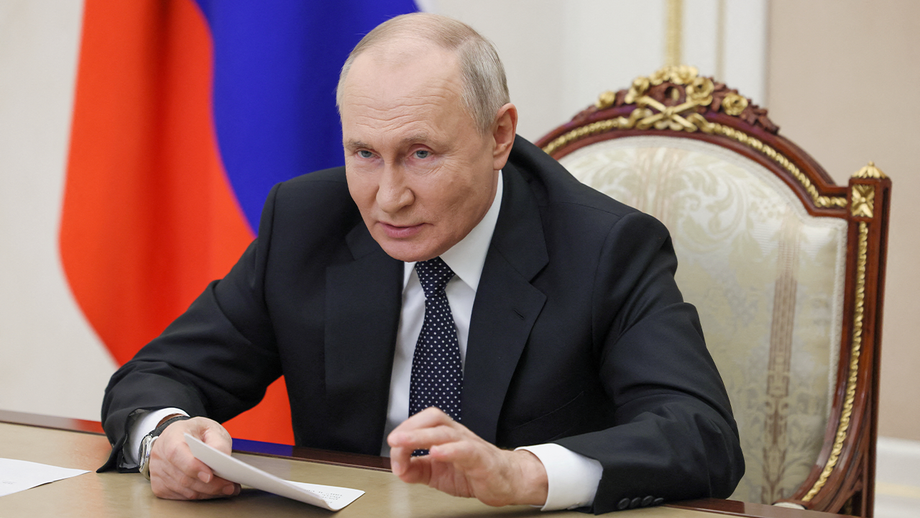
PUTIN PRAISES Trump: Calls for True Peace in Ukraine
— Russian President Vladimir PUTIN thanked Donald Trump for his efforts to end the Ukraine conflict. Yet, Putin stressed the need for true peace, not just a 30-day ceasefire. He agreed with the idea but emphasized resolving deeper issues with American partners.
Putin spoke at a Moscow news conference, supporting an end to fighting but urging solutions to root problems. Meanwhile, U.S. officials met Saudi and Russian leaders in Riyadh about regional stability and security. Key figures included Secretary of State Marco Rubio and national security advisor Mike Waltz.
Though Putin didn’t reject Ukraine’s ceasefire deal outright, he noted challenges like Ukrainian troops in Russia’s Kursk region. He argued that a ceasefire would mainly help Ukraine by giving it time to regroup and rearm its forces.
In these conditions,“ Putin said, ”it would be good for the Ukrainian side to secure a ceasefire for at least 30 days.
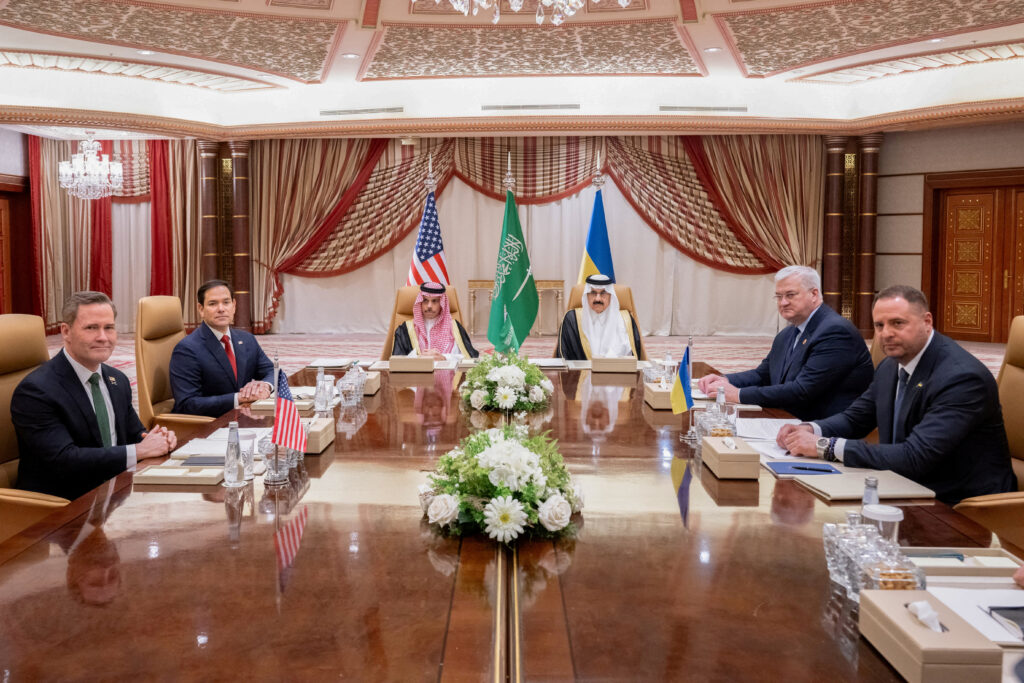
PUTIN’S Ceasefire Agreement: Is Peace in Ukraine a Reality?
— Russian President Vladimir PUTIN has agreed to a U.S. proposal for a 30-day ceasefire in Ukraine. However, he insists on clarifying key terms to ensure lasting peace. Putin worries the ceasefire might allow Ukrainian forces to regroup after their recent gains.
In the Kursk region, Russian forces reportedly recaptured Sudzha, a strategic town previously under Ukrainian control. This development complicates Kyiv’s position in potential peace talks and highlights ongoing volatility and strategic moves by both sides.
U.S. officials, including Trump’s special envoy Steve Witkoff, are in Moscow discussing the ceasefire proposal with Russian counterparts. Despite diplomatic efforts, skepticism remains high among Putin’s aides who suspect it might be a ploy for Ukraine to prepare for further conflict. The U.S., however, is pushing for Russia’s acceptance as part of broader peace efforts involving trade tensions with Canada too.
Ukrainian President Volodymyr Zelenskyy remains cautious about Russia’s commitment due to past breaches by Moscow. He emphasizes the need for guarantees that any ceasefire will lead to genuine peace rather than just temporary relief from hostilities. These developments underscore ongoing complexities and potential impacts on future relations between these nations.;
US Calls Out RUSSIA as a Major PEACE Blocker
— The United States has called Russia the main “impediment” to peace in ongoing conflicts. This marks a big shift in U.S. foreign policy as tensions rise and Russia rejects a ceasefire call. The announcement could greatly affect diplomatic efforts and talks in the region.
America’s new stance on Russia raises questions about future diplomacy and possible tension escalation. The push for a ceasefire highlights struggles in conflict zones worldwide, showing the challenges of international diplomacy.
In other news, the Securities and Exchange Commission (SEC) reported a major financial move by Capital Asia Investments Pte Ltd. from Singapore on March 12, 2025. The company sold 123,923,085 shares from Bangchak Corporation Public Company Limited, marking an important event in finance.

RUSSIA’S Ceasefire Dilemma: US Negotiations Face Challenges
— Russian President Vladimir Putin is facing hurdles in agreeing to a ceasefire with Ukraine. A senior Russian source says any deal needs detailed terms and guarantees. The United States is actively involved in talks, but Moscow insists that agreements must be on its terms, not Washington’s.
GREENLAND ELECTION SHOCKS WORLD: Trump’s ANNEXATION Threat BACKFIRES
Greenland’s center-right opposition party won a key election influenced by President Donald Trump’s annexation threat. The election showed Greenlanders’ strong desire for independence from Denmark, with 85% opposing US annexation. Recent polls reveal that nearly half of the population sees Trump’s interest as a threat.
TRUMP’S TRADE WARS: Global MARKETS on EDGE
President Trump continues to push tariffs, causing retaliation from the EU and Canada and unsettling global markets. This strategy raises fears of a potential U.S. recession and broader economic slowdown as investor confidence wavers under trade tensions’ pressure.

UKRAINE Cease-Fire: Russia’s RESPONSE Could Change Everything
— Russia is waiting for details from Washington on U.S.-Ukrainian cease-fire talks held in Saudi Arabia. Kremlin spokesperson Dmitry Peskov said they need “detailed information” before commenting on the 30-day cease-fire proposal that Ukraine has accepted. Moscow has always opposed temporary measures, wanting a permanent solution to the conflict.
Secretary of State Marco Rubio led the American team in these discussions and confirmed Ukraine’s willingness for a 30-day cease-fire. Rubio assured that the U.S. will inform Russia about the proposal, aiming for immediate talks to end the war permanently.
U.S. envoy Steve Witkoff plans to visit Russia later this week and may meet President Vladimir Putin. “We’re going to bring it to them directly,” Rubio emphasized, showing that Ukraine is ready for negotiations if Russia agrees.
Rubio noted that if Russia accepts, it would be substantial progress toward peace. A refusal would reveal Moscow’s true intentions regarding Ukraine’s ongoing conflict. The outcome could greatly impact future diplomatic relations and regional stability.
UKRAINE’S BOLD Move: US-Backed Ceasefire Sparks Hope
— Ukraine has agreed to a U.S.-proposed one-month ceasefire with Russia, if Russia follows the terms. This follows talks with U.S. National Security Advisor Mike Waltz, Secretary of State Marco Rubio, and Saudi Foreign Minister Prince Faisal bin Farhan Al Saud. This is a crucial step amid rising tensions in the region.
The ceasefire proposal shows increased diplomatic efforts by various nations to stabilize Eastern Europe. Saudi Arabia’s involvement highlights its growing role in international peace efforts and may lead to more comprehensive negotiations in the future.
Ukraine’s decision reflects a strategic move towards diplomacy while being cautious about Russia’s commitment to the terms. As global attention turns to this truce, it’s crucial for both sides to adhere strictly for lasting peace prospects.
This development is key for ongoing talks about Ukraine’s conflict with Russia and could lead to stronger diplomatic resolutions if successful. The world watches closely, hoping for peace in this long-standing conflict zone.

UKRAINE and RUSSIA Ceasefire: A Shocking Step Toward Peace
— The United States will resume military aid and intelligence sharing with Ukraine. This decision follows recent talks in Saudi Arabia. Kyiv is ready to accept a U.S. proposal for a 30-day ceasefire with Russia.
This marks a big change in the ongoing conflict between Ukraine and Russia. The proposed ceasefire aims to lower tensions and open the door for more diplomatic talks. Both countries have been locked in long hostilities, affecting regional stability.
The agreement highlights the U.S.'s commitment to supporting Ukraine against Russian aggression. Military aid is vital for Ukraine’s defense, while intelligence sharing boosts strategic abilities. This move could lead to more comprehensive peace talks soon.

UKRAINE’S Shocking Move: US Ceasefire Plan Accepted
— Ukraine and the United States announced a major development on Tuesday. After discussions in Saudi Arabia, Ukraine agreed to a U.S. proposal for a 30-day ceasefire with Russia. This decision comes as the U.S. resumes military aid and intelligence sharing with Kyiv immediately.
The joint statement from both countries highlights their cooperation amid ongoing tensions with Russia. The ceasefire aims to provide a temporary halt in hostilities, allowing diplomatic efforts to take center stage.
This move is seen as a strategic step by the Biden administration to stabilize the region temporarily while exploring long-term solutions. Critics argue that such measures may only offer short-lived relief without addressing deeper issues in Eastern Europe.

UKRAINE CEASEFIRE: US Backs Peaceful Hope In Russia Conflict
— The United States will restart military aid and intelligence sharing with Ukraine. This decision comes after talks in Saudi Arabia, where Kyiv accepted a 30-day ceasefire proposal from the U.S.
This move aims to ease tensions in the ongoing conflict with Russia. The joint statement highlights cooperation between the U.S. and Ukraine to stabilize the region and explore peace options.
The agreement is a crucial step towards potential resolution, though challenges remain as military actions continue in the area. Both nations express hope for a peaceful outcome through this temporary truce.

US RESUMES SECURITY Support to Ukraine: A Bold Move for Peace
— The United States will restart military aid and intelligence sharing with Ukraine. This decision comes after Kyiv showed it is ready to accept a U.S.-proposed 30-day ceasefire with Russia.
This action is part of a larger diplomatic plan to stabilize the region amid ongoing tensions. US officials emphasize how crucial this aid is for Ukraine’s defense and regional stability.
Both countries are in talks to reduce conflict and find lasting peace solutions. Restarting support marks a big step in US-Ukraine relations during these tough times.

US RESUMES MILITARY AID to Ukraine: A Bold Move Amid Ceasefire Talks
— The Trump administration has announced the immediate resumption of military aid to Ukraine. This decision aligns with Ukraine’s openness to a 30-day ceasefire, signaling a potential shift in the ongoing conflict. Delegations from both sides engaged in discussions for several hours, with more talks planned.
President Donald Trump is set to speak with Russian President Vladimir Putin about a possible ceasefire. Ukrainian President Volodymyr Zelensky has been invited back to the White House for further discussions. The Russian Foreign Ministry expressed willingness for continued dialogue with U.S. representatives, sparking hope for a peaceful resolution that respects Ukraine’s sovereignty.
Safety concerns have escalated following a tragic midair collision involving an Army helicopter and an American Airlines jet near Ronald Reagan Washington National Airport in January 2025. All 67 individuals on board both aircraft perished, prompting NTSB investigator Jennifer Homendy to urge the FAA to implement urgent safety measures immediately.
On the economic front, Asian markets are experiencing significant declines amid global sell-off trends impacting investor confidence worldwide. Japan, South Korea, and Taiwan saw market drops of about 2% as part of this broader financial downturn following the S&P 500’s worst day of the year on March 11th.
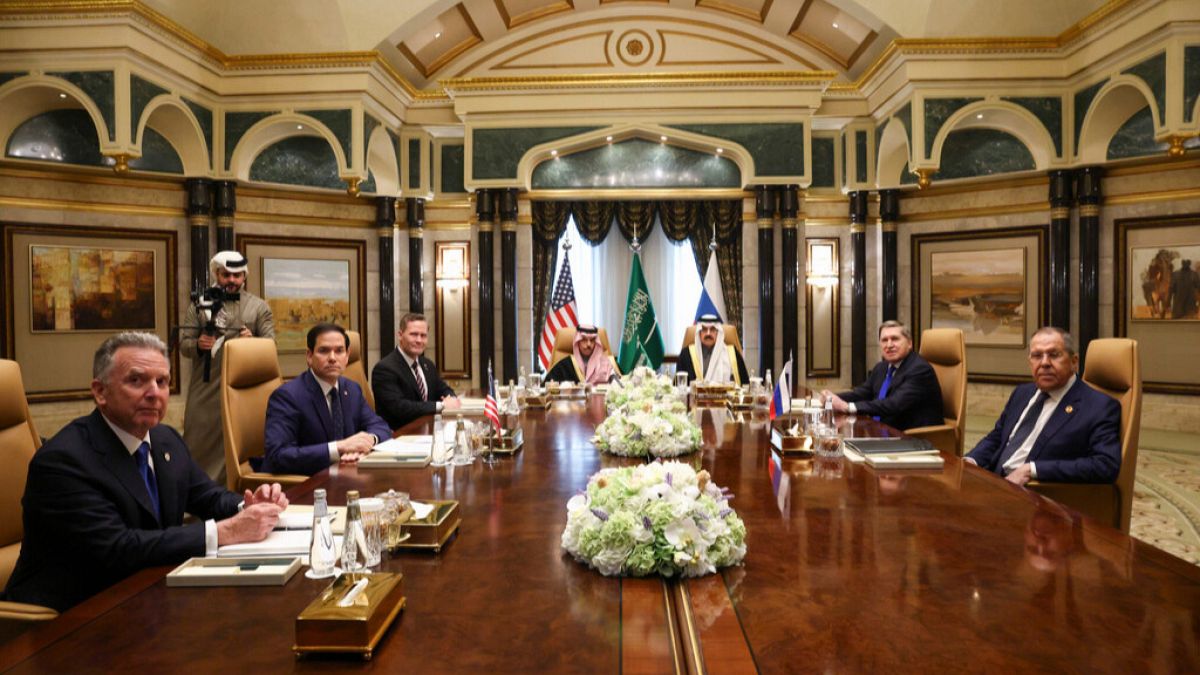
SAUDI TALKS: Ukraine’s Desperate Bid for Peace in High-Stakes Meeting
— High-stakes talks between Ukraine and the United States kicked off in Jeddah, Saudi Arabia, aiming to end Kyiv’s ongoing conflict with Moscow. This meeting follows a massive drone attack where Russian defenses shot down 337 Ukrainian drones over ten regions in Russia, resulting in two deaths and 18 injuries.
U.S. Secretary of State Marco Rubio met with senior Ukrainian officials at a luxury hotel, while Saudi Arabia’s foreign minister was present. Despite the tense atmosphere, there was no immediate comment from either side about the drone attack. The talks signal a renewed diplomatic effort after tensions rose during President Zelenskyy’s recent visit to the White House.
Ukrainian officials plan to propose a ceasefire covering the Black Sea for safer shipping routes and an end to long-range missile strikes affecting civilians. They also seek prisoner releases as part of their proposal.
Russia remains firm on its conditions for peace, demanding Ukraine abandon its NATO aspirations and recognize Russian-occupied regions as part of Russia before stopping hostilities. No concessions have been publicly offered by Moscow at this time.
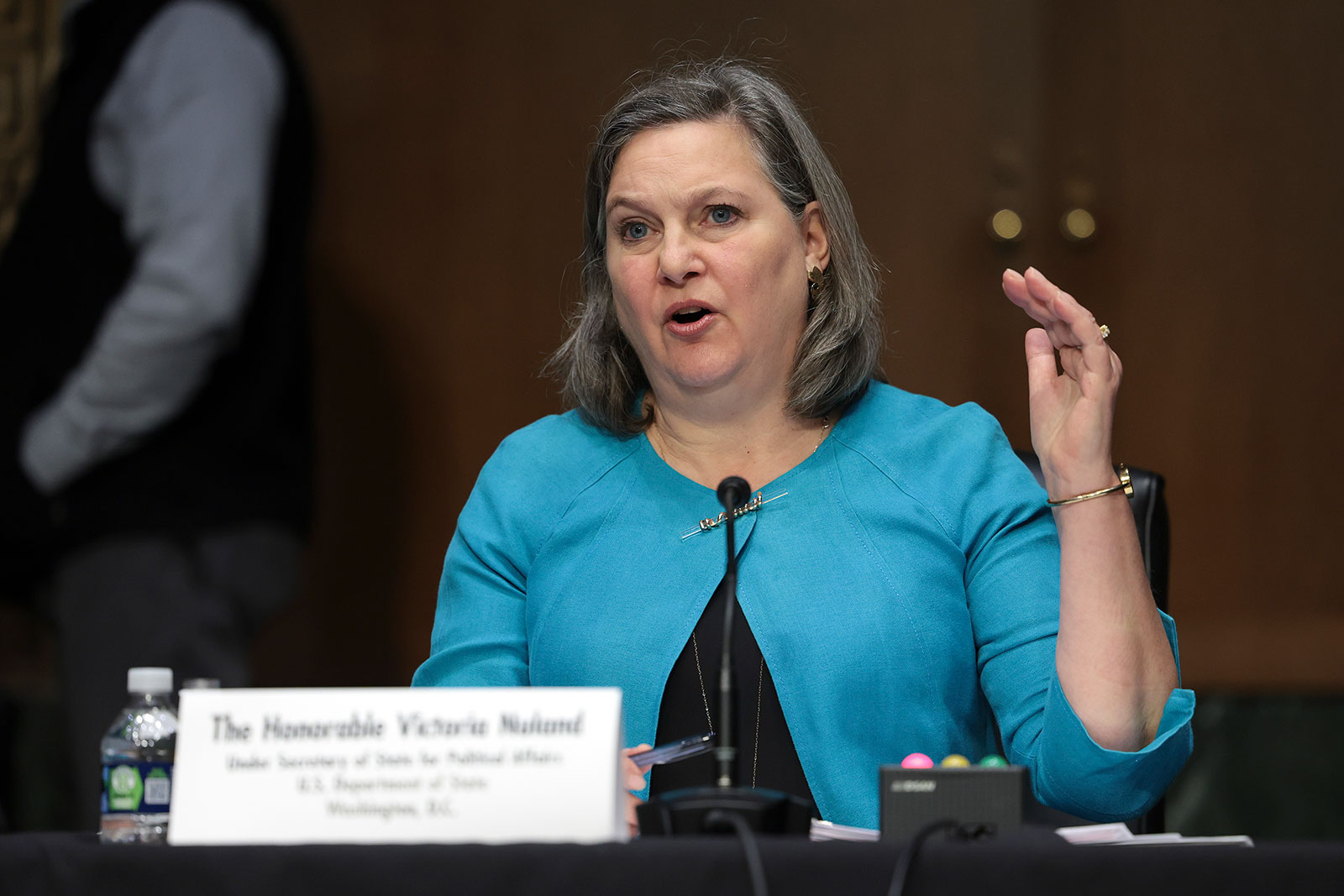
US RESTARTS Military AID to Ukraine: A Bold Move Amid Ceasefire Talks
— The UNITED STATES has agreed to restart military aid and intelligence sharing with Ukraine. This decision comes as Kyiv considers a U.S.-proposed 30-day ceasefire with Russia. The announcement marks a pivotal moment in U.S. support for Ukraine amid ongoing conflict.
A joint statement from U.S. and Ukrainian officials confirmed the resumption of security support. The proposed ceasefire aims to reduce hostilities and open doors for further negotiations between the involved parties, signaling a strategic shift in U.S. foreign policy toward stabilizing Ukraine through diplomacy.
This announcement arrives during heightened tensions between Ukraine and Russia, where continued hostilities threaten regional stability. Since the conflict began, the U.S.’s role has been crucial in providing both military and humanitarian assistance to Ukraine, underscoring its commitment to supporting allies against aggression.

WORLD NEWS Pause: A Calm Before the Storm?
— The current world news cycle shows no fresh BREAKING developments. Events remain steady, reflecting a pause in major headlines.
This stability offers a chance to focus on ongoing stories and their impacts. It’s a moment to dig deeper into existing issues and understand their implications.
Stay informed by watching for updates as they happen. Even in calm times, deeper analysis can provide valuable insights into global affairs.
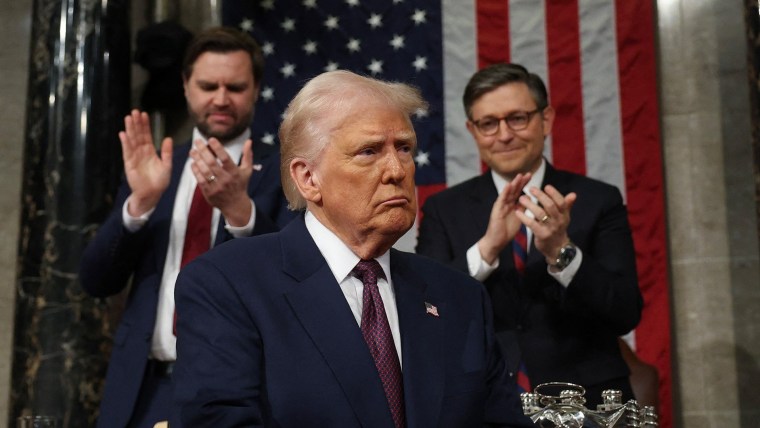
QUIET Before the STORM: Why No Breaking News Today
— In a surprising turn, there are no major BREAKING news stories today. This rare pause in the fast-paced news cycle offers a moment of calm.
While it’s unusual not to have big headlines, this quiet period lets us reflect on ongoing issues and developments. Remember, situations can change quickly, so stay informed.
We’re ready to report new updates as they come in with clarity and precision. Stay tuned for the latest developments as they unfold.
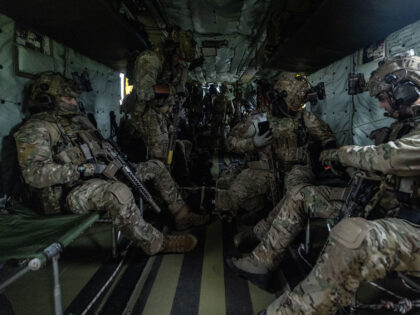
BRITAIN and EUROPE Rally Defense: A Bold Response to Ukraine WAR
— Britain and Europe are ramping up their defense in response to the Ukraine War. Secretary of State for Defence John Healey confirmed this commitment to U.S. Secretary of Defense Pete Hegseth. Healey praised Trump’s NATO policy, emphasizing Europe’s need for self-reliance in defense matters.
NATO’s requirement of spending two percent of GDP on defense has been a standard for years, but many European countries have fallen short. With current threats, discussions are underway to raise this minimum to three or even five percent, similar to Cold War levels. UK Health Minister Stephen Kinnock backed these efforts, saying Europe must be ready to defend its territory.
Kinnock acknowledged America’s push for NATO members to boost their defense capabilities and called it “absolutely right.” He highlighted the need for military readiness and meeting challenges directly. However, he criticized past Conservative governments while overlooking Labour’s own failures during their rule from 1997 to 2010.
During Labour’s last time in power, national defense spending dropped despite Tony Blair’s involvement in Iraq. The British military faced severe equipment shortages due to poor funding then. An inquiry later exposed critical gaps like a lack of helicopters and armored vehicles that compromised troop safety during overseas missions.

US SHOCKS WORLD by Siding with Russia at UN Vote
— The United States surprised many by voting against a UN resolution condemning Russia’s actions in Ukraine. This vote coincided with the third anniversary of Russia’s invasion. While 93 nations supported the resolution, 65 abstained. The decision highlights a growing coalition of autocratic countries at the United Nations.
Ukrainian Deputy Foreign Minister Mariana Betsa called for global unity and strength against aggression. Despite her plea, the U.S., along with Russia, North Korea, and Hungary, voted “no.” Ambassador Dorothy Shea mentioned that past resolutions have failed to stop the conflict’s destruction.
The U.S.'s choice to align with Russia underscores significant geopolitical tensions and divisions in international support for Ukraine. This diplomatic move reflects broader challenges in addressing Russian aggression globally.

DIGITAL NEWS Chaos: How Tech Issues Leave Readers Frustrated
— In today’s digital world, TECHNICAL difficulties can block access to important news. Recently, users struggled to get the latest updates.
These disruptions reveal weaknesses in our digital systems and raise questions about their reliability. Such problems affect how fast and accurately people get vital news.
For those wanting timely information, these barriers are annoying and inconvenient.
Building strong systems is key to keeping public trust in online news platforms.

US SHOCKS World by BACKING Russia at UN: A Controversial Move
— On March 6, 2025, the United States marked the third anniversary of Russia’s invasion of Ukraine by siding with Moscow at the United Nations. The U.S. joined a group of autocratic nations opposing a resolution condemning Kremlin aggression. This resolution, introduced by Ukraine, passed with support from 93 nations while 65 abstained from voting.
The resolution condemns the February 2022 invasion and holds Russia responsible for starting it. Ukrainian Deputy Foreign Minister Mariana Betsa urged nations to promote “just and lasting peace.” The vote signifies a diplomatic setback for the Trump administration, which had encouraged European allies to oppose it.
The Trump administration proposed its own resolution that avoided directly blaming Russia for the war. European nations revised this proposal to highlight “the full-scale invasion” by Russia, leading to U.S. abstention on its own measure.
In aligning with Russia and allies like North Korea and Belarus, Ambassador Dorothy Shea defended the U.S.'s focus on ending the war rather than assigning blame. She noted past resolutions failed to stop ongoing suffering in Ukraine and beyond.
EUROPEAN UNION in Turmoil: Defense Woes Under Trump
— European Union leaders rushed to Brussels for emergency talks, worried about U.S. support under President Donald TRUMP. They focused on boosting European security and protecting Ukraine. Friedrich Merz, Germany’s likely next chancellor, and summit chairman Antonio Costa discussed quickly strengthening Europe’s defenses.
Merz pushed for easing Germany’s debt rules to boost defense spending. Meanwhile, French President Emmanuel Macron proposed using France’s nuclear capabilities to protect Europe from Russian threats. This is a big change since Trump began disrupting U.S.-Europe security ties.
Danish Prime Minister Mette Frederiksen stressed the need for more defense spending across Europe, a big shift from past budget priorities where military funding was low. Macron promised that EU countries would increase military budgets and work together on advanced weapon production in Europe.

US INTEL CUTS to Ukraine Spark Fears of Abandonment
— The UNITED STATES has stopped sharing intelligence with Ukraine, causing worry among European allies. President Macron warned Europe to prepare for a future where the US might not be as supportive. This change comes amid the ongoing conflict between Ukraine and Russia.
In response, EU members are holding emergency talks to strengthen support for Ukraine. They aim to address changing dynamics and ensure continued backing for Kyiv in its fight against Russian aggression.
Meanwhile, severe weather during Mardi Gras destroyed a recently rebuilt camp in Plaquemines Parish, Louisiana. Owner Christian Amedee believes a tornado caused the damage, adding more hardship after reconstruction efforts.
In other news, former President Trump issued a stern warning to Hamas about Israeli hostages in Gaza. He suggested dire consequences if civilians held hostages during negotiations in Qatar aimed at resolving the conflict and securing hostage releases.

Video
INDIA-PAKISTAN Ceasefire Shattered: Heartbreaking Chaos Returns to Border
— Violence broke out again between India and Pakistan just hours after they agreed to a ceasefire. Explosions hit Srinagar and Jammu, with both countries blaming each other for breaking the deal. People living in Kashmir are scared as peace slips away.
The United States and other countries tried to help stop the fighting, but their efforts have not worked. More families are leaving their homes, crowding train stations as they search for safety. Pakistan says it still wants peace, but India’s air defenses stay on high alert.
Experts say rising violence around the world is making things worse everywhere. India is trying to balance its interests by making trade deals with the UK while also buying energy from Russia.
Even with all this trouble, people around the world took time to celebrate Mother’s Day. The holiday gave families a short break from fear and uncertainty.
